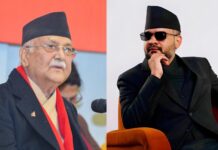In many ways, the Taliban blitz through Afghanistan, saw the Afghan National Defense and Security Forces crumble. It took the militant group to the gates of Kabul and victory in days instead of weeks or months as the CIA predicted. It also heralds the return of Af-Pak, a hyphenation that Pakistan may no longer rile against.
Many in Afghanistan, India’s diplomatic and intelligence establishments believe that the Taliban’s victory couldn’t have come without active assistance from Pakistan.
HISTORY OF TALIBAN-PAKISTAN RELATIONS:
The assertion springs from the long relationship Pakistan has had with the Taliban. From birthing it in 1994, supporting its first takeover of Afghanistan in 1996, to sheltering the fighters and leaders in the aftermath of the post-9/11 US invasion. Even as it claimed to be supporting the US in the “war on terror”.

PAKISTAN’S STATEMENT:
Prime Minister Imran Khan said Monday that Afghanistan had “broken the shackles of slavery”. Many retired and serving generals are exultant that Pakistan will finally have “friends” in the driving seat in Kabul. They have expressed admiration openly for the Taliban.

HOW PAKISTAN HELPED TAKEOVER?
One reason for the Taliban’s swift advance is the ease with which they overpowered the Afghan security forces. Its leadership demoralized by the unseemly haste of the US troop’s withdrawal. But Afghan’s deposed Vice President Amrullah Saleh and other members of the Ashraf Ghani government. Also alleged the Pakistan Army’s Special Forces and the ISI were guiding the Taliban.
While this is not possible to verify, Pakistan’s undeniable contribution has been in providing the Taliban shelter on its territory. All that Pakistan would say in response is that its influence on the Taliban as “overstated”. The safe havens had existed from virtually the start of the US “war on terror” in 2001. The US was aware, however its need for Pakistan as a logistics back end for the war in Afghanistan was greater. Hence, it did not push the Pakistan military sufficiently to act against these safe-havens.
The political leadership of the Taliban camped in the Baluchistan capital of Quetta. It became the revolving door for fighters of Afghan Taliban. Its associated group the Haqqani Network, along with al-Qaeda and a gaggle of other jihadists. They crossed in and out of Afghanistan at will under the benevolent gaze of the Pakistan Army. In the recent Taliban fighting the same safe havens in Pakistan used to launch their attacks in Afghanistan.
Sheikh Rashid’s statement:
The Spin Boldak conquest by the Taliban saw celebratory motorcycle rallies by Taliban fighters and supporters in Quetta. Sheikh Rashid, a minister in Imran Khan’s cabinet, told Geo News last month that the Afghan Taliban wounded in the fighting were being treated in hospitals in Pakistan. Further, the bodies of dead are sometimes buried in Pakistan where their families live. A July Voice of America report, quoting villagers near Quetta, said funeral prayers were regularly being held for Taliban fighters killed in Afghanistan.

After a video clip of the incident went viral, Peshawar police officials confirmed a funeral rally for a Taliban fighter. There pro-Taliban and pro-Islamic Emirate slogans were also raised.
The Indian security establishment has held that fighters of the Lashkar-e-Taiba, a pet jihadist group of the Pakistan military, fought alongside the Taliban against US and NATO soldiers from at least 2017 onwards.
PAKISTAN AS PROXY:
Over the last three decades, Pakistan has viewed the Taliban as serving various purpose:
- Taliban regime in Kabul and its umbilical connection with Pakistan would ensure the Pakistan military a free pass over Afghanistan. The territory it coveted for “strategic depth” in its enmity with India. While still ensuring Pakistan agency over Afghan routes into Central Asia.
- Since 2001, Indian involvement in development activities there, and its increased diplomatic presence, a concern for the Pakistani establishment. This they alleged as “encirclement” by India.
- Post-2004 Afghan governments headed by Karzai or Ghani, not shy of saying out loud that Pakistan was sheltering the same militants it claimed to be fighting.
- In response to Pakistan’s denial of a land route to India for trade with Afghanistan, New Delhi began developing the Chabahar port in Iran, with a planned trade corridor via rail to the Iranian border with Afghanistan at Zaranj, with the India-built Zaranj-Delaram highway providing connections to the heart of Afghanistan.

CONCLUSION:
While there is smug satisfaction in Pakistan right now at the proxy victory in Afghanistan, many are also warning of “blowback”. All said and done, Pakistan views itself as a modern Islamic state. Although its generals and political leaders may welcome the second coming of Taliban in Afghanistan. Significant sections, including in the military, are quite clear that their own country must be shielded from the impact.
An immediate fallout would be an influx of refugees, which would be a drain on Pakistan’s slender resources. What is of more concern is that the Taliban’s rise in Afghanistan may fan the fires of extremism in Pakistan. Where an array of jihadist groups — anti-India, sectarian, pro-al-Qaeda, anti-Pakistan —continue to exist despite several purported crackdowns against them.
Also, Read| Taliban In Afghanistan: Threats To India




